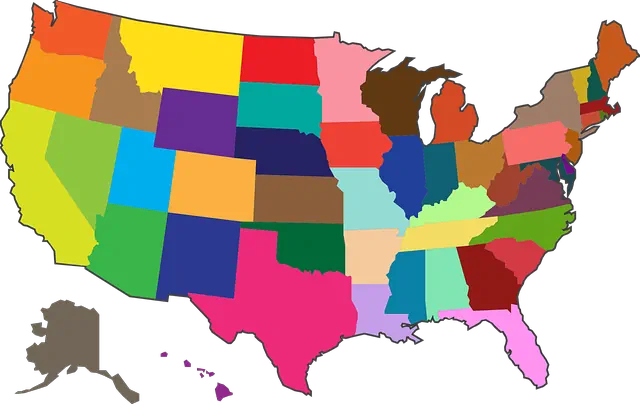 |
| Image by fajarbudi86 from Pixabay |
What has always bothered me about the claim that the United States is one country vs. several? It doesn't seem to be accurate. Where someone lives within the country shouldn't determine all the things it does. It shouldn't determine whether one's vote counts. It shouldn't reveal the quality of the education one may receive in public schools. It shouldn't tell us anything about one's access to healthcare. Most of all, it shouldn't determine one's rights under the law.
I'm sure you've heard about Walgreens employees allegedly refusing service based on their religious beliefs. We all know this sort of thing will be more common in some states than others. That means the ease of obtaining birth control will vary based on where one lives. This is one more right people took for granted that is now on shaky ground.
What Roe did for us was give every American the same right to choose. Access to abortion still varied based on where one lived, but the legal right to it did not. That's gone now.
While I have little interest in being a "responsible gun owner," I agree with those who that gun laws are a mess. Gun laws should not vary like they do based on where someone lives. A "responsible gun owner" shouldn't have to worry about traveling from state to state. Not while they are traveling within the same country.
I don't mean to suggest that whatever is going on with Walgreens is an issue of state rights. It is more than that. It is about whether we should grant religious exemptions to those who want to judge others as part of their job. It is about Christian privilege. It is about Christians finding yet another way to impose their beliefs on others. But it also makes me think about the importance of federal law in what is allegedly one nation.
You walk into a Walgreens, and an employee refuses to serve you because of their Christianity. Now what? The employee is supposed to refer you to another employee who doesn't have their hang-up. If they do, you experience a delay other customers don't face. But that assumes they have employees who aren't blinded by their religion. If not, you have to go elsewhere. And depending on where you live, you may have few other options.
Does this remind anyone else of Christian bakers refusing to serve same-sex couples? Wedding cakes and medications are different. Still, I'm not sure we should be comfortable with the idea that my "sincerely held religious beliefs" entitle me to treat others poorly.
With the Supreme Court trying to turn back the clock, we can only guess what will happen next. It wouldn't surprise me to see some "Christians only" signs in local store windows. You won't see that in Vermont or Oregon, but it seems less far-fetched in Mississippi.
When I was a child, Christians pushing for theocracy were sometimes met with derision. "Go live in Iran if you want a theocracy." Of course, they wanted a Christian theocracy and not a Muslim one. These days, they don't need to go to Iran. They have many red states to choose from.
Are we one country? Or are we two or more countries with two or more sets of laws? Should where someone lives have this much of an impact on the sort of life they'll have? Should it determine their rights? If so, it is hard to keep arguing that this is one nation.